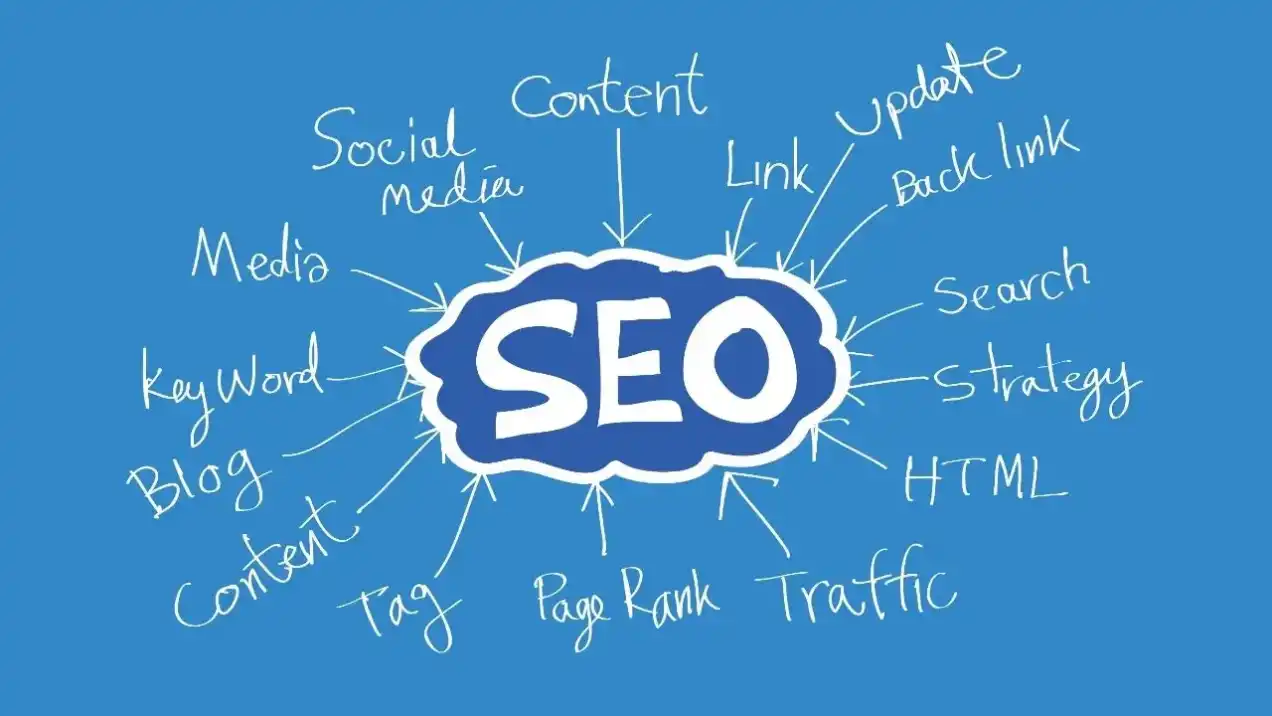SEO strategies are often divided into two categories: Black Hat and White Hat. While Black Hat SEO focuses on quick, often manipulative tactics to game search engine algorithms, White Hat SEO prioritizes ethical, long-term growth through quality content and user experience. As search engines become more sophisticated in 2025, the risks of using Black Hat techniques are higher than ever, making it crucial to choose the right approach. In this article, we’ll compare Black Hat vs. White Hat SEO, explore their impact, and help you decide which methods to use for sustainable success.
Black Hat vs. White Hat SEO in 2025 – Which Methods Work Best?
In the ever-evolving world of SEO, digital marketers are faced with a variety of strategies to enhance their online presence. Two of the most well-known techniques are Black Hat SEO and White Hat SEO. As search engines like Google become more advanced, the methods used to manipulate rankings have evolved significantly. Understanding the difference between Black Hat and White Hat SEO is essential for making informed decisions about the strategies that will work best for your website in 2025.
Search Engine Optimization (SEO) remains a cornerstone of digital success in 2025, but the strategies behind it have never been more polarized. On one side, we have white hat SEO, a method rooted in ethical practices and long-term growth. On the other, black hat SEO tempts with quick wins but carries significant risks. As search engines like Google evolve, the debate over what is white hat and black hat SEO intensifies. Which approach works best in today’s landscape? Let’s dive into the evolution, principles, techniques, and outcomes of both to find out.

Evolution of SEO Practices Over the Years
Search engine optimization (SEO) has come a long way since its inception. In the early days of the internet, SEO techniques were much simpler, and the focus was mainly on keyword stuffing, basic backlinks, and other tactics that were easy to manipulate. However, as search engines like Google began to recognize these tactics, they implemented algorithm changes to provide more relevant and high-quality results for users. Over time, Google’s algorithms evolved, and practices that once worked began to be penalized. If you come across suspicious tactics that seem to violate search engine guidelines, learning how to report black hat SEO to Google is crucial, as reporting black hat SEO to Google helps maintain the integrity of search results.
SEO has come a long way since its inception in the 1990s. Back then, stuffing a webpage with keywords was enough to rank high on search engines. However, as algorithms grew smarter, so did the tactics. By the early 2000s, black hat SEO emerged as a shortcut, with practitioners using tricks like hidden text and link farms to manipulate rankings. Meanwhile, white hat SEO began to take shape, focusing on user experience and quality content.
The 2010s marked a turning point with Google’s Panda and Penguin updates, which penalized seo black hat tactics and rewarded ethical strategies. Today, in 2025, artificial intelligence and machine learning dominate search algorithms, making it harder for black hat SEO practices to succeed unnoticed. Yet, the question remains: what is black hat SEO in this modern era, and why does it still persist alongside white hat SEO?
The rise of Black Hat SEO came as a result of these algorithm changes. Black Hat practitioners sought to exploit loopholes and flaws in search engine algorithms to achieve faster and easier rankings. On the opposite side, White Hat SEO emerged as a more ethical and sustainable approach, focusing on providing value to users while adhering to search engine guidelines.
What is White Hat and Black Hat SEO?
In simple terms, White Hat SEO refers to ethical and search engine-approved techniques aimed at improving website rankings. It focuses on creating quality content, acquiring genuine backlinks, and providing a positive user experience. Black Hat SEO, on the other hand, is a set of tactics designed to exploit search engine algorithms in ways that violate their guidelines. These methods often aim to achieve quick results but can lead to penalties and long-term damage to a website’s reputation.
Understanding White Hat SEO
White Hat SEO is a legitimate and sustainable approach to improving your website’s visibility on search engines. It focuses on long-term success, using methods that align with search engine guidelines. The core principle of White Hat SEO is to create high-quality, relevant content and ensure a positive user experience.
Definition and Core Principles of White Hat SEO
So, what is white hat SEO? At its core, white hat SEO refers to optimization techniques that align with search engine guidelines, prioritizing user value over manipulation. It’s about building a sustainable online presence through ethical means. The principles of seo white hat include transparency, quality content creation, and adherence to rules set by platforms like Google.
In 2025, what is a white hat SEO approach means focusing on the audience first—delivering answers, solving problems, and enhancing accessibility. It’s a strategy that avoids shortcuts and builds trust with both users and search engines.
What is white hat seo? Refers to techniques that are in line with the terms and conditions of search engines like Google. It involves strategies that focus on providing value to the user while improving the website’s visibility and ranking through ethical means.
Core principles of White Hat SEO include:
- Adhering to search engine guidelines: Ensuring that your website is optimized according to the rules set by search engines like Google.
- Quality content creation: Focus on creating engaging, informative, and valuable content that answers users’ queries.
- Building natural backlinks: Acquiring backlinks from reputable sources to increase the authority of your website.
- Optimizing user experience: Making sure your website is user-friendly, fast, and easy to navigate.
Key White Hat SEO Techniques
White hat SEO methods in 2025 are diverse but consistent in their focus on quality. Content remains king, with well-researched, original articles optimized for natural keyword use. Techniques like on-page optimization—think meta tags, alt text, and proper URL structures—are staples of white hat SEO strategies.
Link building, particularly white hat SEO backlinks, is another critical area. Earning links from reputable sites through guest posts or partnerships showcases authority. Tools like white hat SEO tools (e.g., Ahrefs or SEMrush) help track performance without resorting to shady tactics. Voice search optimization and mobile-first design also dominate, reflecting user behavior trends in 2025.

Some of the most important White Hat SEO methods include:
- Content marketing: Creating high-quality, original content that attracts users and earns backlinks naturally.
- On-page optimization: Optimizing elements like title tags, meta descriptions, and header tags to make your content more accessible to search engines.
- Building a strong backlink profile: Earning backlinks from authoritative websites to improve your website’s trustworthiness and authority.
- Mobile optimization: Ensuring that your website is mobile-friendly, as Google now prioritizes mobile-first indexing.
The Benefits of White Hat SEO in the Long Run
The appeal of white hat SEO and google black hat seo report often comes down to patience. White hat SEO offers longevity—sites built on these principles rarely face penalties and enjoy steady growth. In 2025, businesses using what is white hat seo? techniques see higher trust from users, better brand reputation, and consistent traffic. While results take time, the stability outweighs the volatility of black hat SEO methods.
White Hat SEO provides long-term benefits for websites. Some of these include:
- Sustainable growth: By following ethical practices, your website is more likely to maintain consistent growth without risking penalties.
- Trustworthiness: Websites that adhere to White Hat SEO are more likely to gain trust from both users and search engines.
- Avoiding penalties: As search engines become more sophisticated, using White Hat techniques reduces the risk of being penalized for manipulating rankings.
- Better user experience: A website optimized for both search engines and users will naturally have a better user experience, which can lead to increased conversions and engagement.
Understanding Black Hat SEO
While White Hat SEO focuses on ethical methods, Black Hat SEO is a more controversial approach. This method involves using tactics that violate search engine guidelines to achieve fast, often temporary results. Black Hat SEO is frequently associated with attempts to manipulate search engine rankings by any means necessary.
Definition and Core Principles of Black Hat SEO
Now, what is black hat SEO? Simply put, black hat SEO involves tactics that violate search engine guidelines to achieve quick rankings. It’s the dark side of optimization, driven by exploitation rather than value. The core of seo black hat lies in deception—tricking algorithms with methods like keyword stuffing or cloaking, where users and search engines see different content.
In 2025, what is black hat SEO has evolved with technology, but its essence remains: prioritizing short-term gains over ethics. Practitioners often rely on black hat SEO tools to automate these schemes, despite the risks.
Black Hat SEO refers to unethical techniques used to improve a website’s ranking, often by exploiting loopholes in search engine algorithms. The goal is to manipulate search results to benefit the website owner, even if it goes against search engine guidelines.
Core principles of Black Hat SEO include:
- Exploiting loopholes: Finding weaknesses in search engine algorithms and using them to your advantage.
- Focusing on quick results: Black Hat SEO techniques are usually designed to generate fast rankings, often at the expense of long-term results.
- Disregarding user experience: The main focus is on achieving higher rankings, regardless of the quality or relevance of the content.
Common Black Hat SEO Techniques
What are black hat SEO techniques? They range from subtle to blatant. Common examples include black hat SEO backlinks from spammy directories or paid link schemes, which artificially inflate a site’s authority. Other black hat SEO practices are more technical, like using black hat SEO software to generate hidden text or duplicate content across domains.
In 2025, advanced black hat SEO tool options might scrape content or manipulate AI-generated text to flood search results. Cloaking remains popular, as does comment spam—flooding forums with irrelevant links. These methods promise fast results, but they’re a gamble.
Some of the most commonly used Black Hat SEO tools and techniques include:
- Keyword stuffing: Overloading a webpage with an excessive amount of keywords to rank for specific search queries.
- Cloaking: Presenting different content to search engines and users to manipulate rankings.
- Hidden text: Using text that is invisible to users but can still be read by search engines, often stuffed with keywords.
- Link farming: Creating or joining networks of websites that link to each other to artificially inflate backlink profiles.
- Duplicate content: Copying content from other websites to create multiple pages that target the same keyword.
Why Some SEOs Still Use Black Hat Methods?
So, why do people use black hat SEO? The answer lies in speed and competition. In industries where ranking first means everything, best black hat SEO tactics can deliver overnight success. Some businesses, especially short-lived ventures, don’t care about long-term consequences—they want profit now. Others use black hat SEO software because they lack the resources for white hat SEO strategies, which require time and expertise. Despite Google’s vigilance, the allure of black hat SEO persists in 2025.
Despite its risks, Black Hat SEO continues to be used by some marketers who are looking for quick gains. Common reasons for using Black Hat techniques include:
- Quick results: Black Hat methods can often produce rapid changes in rankings, which may be appealing to businesses looking for immediate success.
- Competitive advantage: Some businesses may use Black Hat tactics to outperform competitors in the short term, especially in highly competitive industries.
- Lack of knowledge or resources: In some cases, businesses may resort to unethical practices because they are unaware of White Hat alternatives or lack the resources to implement them effectively.
Comparing Black Hat and White Hat SEO in 2025
As SEO practices evolve, so do the techniques that are considered acceptable. In 2025, the differences between White Hat SEO and Black Hat SEO remain clear, but there are also gray areas that many marketers navigate. SEO black hat methods might still be appealing for some businesses because they can offer short-term wins. However, the risk of penalties and damage to reputation is higher than ever.
Search engines like Google have become much better at detecting black hat SEO practices. They are constantly updating their algorithms to identify and penalize websites that use manipulative techniques. This makes Black Hat SEO backlinks and other manipulative tactics a much riskier proposition in 2025.
Meanwhile, White Hat SEO has become the industry standard for businesses that want to build long-term, sustainable online visibility. It may take longer to see results, but the risk of penalties is minimal, and the benefits of building a trustworthy online presence are considerable.

SEO Trends and Best Practices for 2025
Looking ahead to 2025, SEO will continue to evolve, and new trends are emerging. Some of the most important SEO trends for the year include:
- User experience (UX): Google’s algorithms are increasingly prioritizing websites that provide a positive user experience, from fast page load times to mobile optimization.
- Voice search optimization: With the growing popularity of voice assistants, optimizing for voice search will become increasingly important.
- Artificial Intelligence (AI) and SEO: AI-driven tools will play a more significant role in content creation, keyword research, and optimization.
- Video content: Video is becoming a dominant form of content, and optimizing videos for search engines is crucial.
Which SEO Strategy Should You Use?
Choosing between White Hat SEO and Black Hat SEO depends on your goals, resources, and risk tolerance. If you’re looking for sustainable growth and want to avoid penalties, White Hat SEO is the best approach. However, if you’re looking for quick results and are willing to take the risk, you might consider using Black Hat SEO – but keep in mind that the long-term consequences could be severe.
When to Stick to White Hat SEO
You should always stick to White Hat SEO if:
- You want to build a reputable and trustworthy brand.
- You’re focused on long-term growth and sustainable results.
- You want to avoid penalties and negative consequences from search engines.
- You aim to provide a great user experience and add value to your audience.
When and Why Some Businesses Take the Black Hat Route
Some businesses may choose to take the Black Hat route if:
- They are looking for quick results and are willing to risk penalties.
- They are operating in highly competitive industries and want to outperform competitors quickly.
- They have a limited budget and need a fast boost to their rankings.
Final Advice on Choosing the Right SEO Approach
The decision between Black Hat SEO and White Hat SEO should be made with care. While Black Hat techniques may offer short-term gains, they come with significant risks that can hurt your website’s reputation and rankings in the long run. White Hat SEO, on the other hand, may require more time and effort but offers a sustainable path to success without the fear of penalties.
Ultimately, the best SEO strategy is one that aligns with your business goals and ethical values. By focusing on creating high-quality content, optimizing for users, and following search engine guidelines, you can build a strong online presence that will stand the test of time.
Together We Rise: A Campaign for Everyone